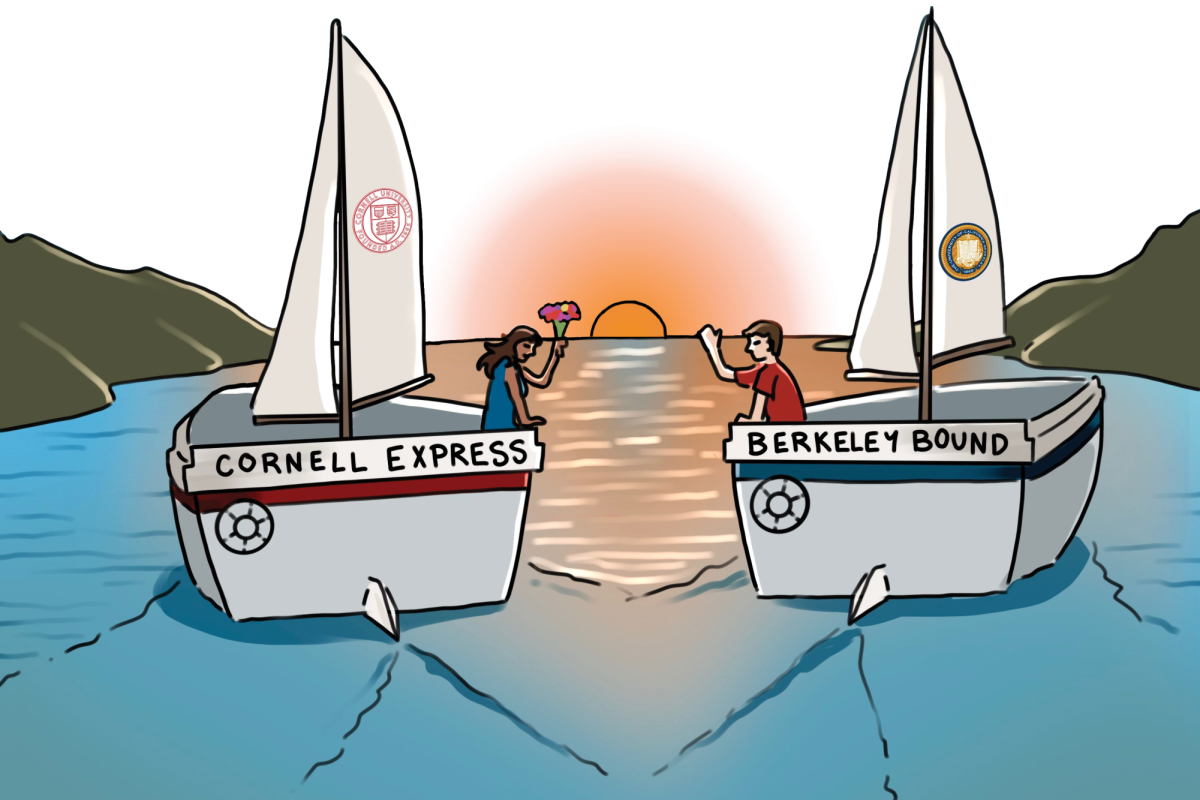After closely following students “Audrey,” “Nate,” “Jenna” and “Christopher” through their respective college processes this year, it’s time to reveal their true identities, college decisions and final remarks on senior year.
The Portfolio Applicant “Audrey”: Sophie Levy
Heaving a sigh of relief, Sophie Levy ’18 is counting down the days until her summer begins, feeling satisfied with her year.
After having applied and been accepted via Early Decision to Barnard College with an art portfolio to supplement her file, Levy said she is confident that her college decision was the right one for her and believes making independent decisions during the process made all the difference.
“Some people were really pressuring me to shoot for a different school than Barnard because [the other school] sounded more impressive,” Levy said. “But I’m really glad I listened to myself in the end and applying Early Decision was absolutely worth it.”
Once she visited the school, Levy said her decision depended a lot on how current students feel about the the daily life at Barnard.
“I wanted to be introduced to Barnard in a realistic manner, so I knew where I would really be spending the next few years,” Levy said. “I didn’t want to rely on the fantasy of a dream school. If you learn about the way your college really feels in a day-to-day manner and you still want to go there, it’s a great sign.”
Levy’s advice for students still completing their high school career? Keep a clear head through the challenges and uncertainty of school.
“Surrounding yourself with people and things you care about can make it a much more gratifying experience,” Levy said. “Value this time of your life as a time to learn and grow as much as you can. Listen to, but also question, what you’re taught, and do the same when you educate yourself independently. Put the critical thinking skills Harvard-Westlake teaches you to use.”
The Athletic Applicant “Nate”: Paul Leclerc
With a smile on his face, Paul Leclerc ’18 said he can finally attest to the statement that “everything works out in the end.”
Leclerc applied and committed to his college of choice, Williams College, in the Early Decision round as a swimmer and categorizes his decision as one that was perfect for him.
“I went into senior year with no idea whatsoever as to what college I liked and didn’t, and going on recruiting trips and experiencing the schools helped me get a very clear idea of what school was my top choice,” Leclerc said. “Without them, I think I wouldn’t have been able to decide which I liked most and may have made a bad decision.”
One of the biggest tips that Leclerc has for athletes looking to be recruited is to give teachers notice of absences far in advance in order to avoid falling behind. Additionally, like Levy, he urges students to make choices that are entirely their own.
“Don’t let coaches bully you into making a decision before you’ve gone on all your trips or before you feel ready,” Leclerc said. “And ask all the difficult questions. Don’t be afraid to ask the coaches and athletes questions that they might not have answers to but that would affect your choice.”
Starting essays and supplements before summer break is advice Leclerc offers to all underclassmen, which helped him on his path to Williams College in the fall.
“Really focus on finding a school that you love, not for the name, but for what it has to offer,” Leclerc said.
The Service Applicant “Jenna”: Izzy Reiff
Izzy Reiff ’18 said she is feeling both grateful and extraordinarily excited for her journey into a service academy, beginning with cadet basic training in early July. Reiff looks forward to joining The United States Military Academy, also known as West Point, this summer.
“This process was definitely the right one for me because I knew early on that I definitely wanted to go to an academy, rather than do something like ROTC,” Reiff said.
Her early knowledge of the academies played a key role in her admissions process, Reiff said.
She said that since service academies in particular have lengthy applications and processes, proactive work is necessary.
“If anyone thinks that they might even be interested in going to an academy, I would advise them to start doing their research as early as possible.”
However, this advice doesn’t just apply to service academy applicants.
Reiff suggests that all students do as much work on their applications as early as they can.
“Whether it’s deciding on where in or out of the country you want to be, on a big or small school or even essay writing, try to leave as little as possible for the last minute,” Reiff said.
Another helpful factor to Reiff’s process was surrounding herself with people who care about her and reminding herself that all support is positive, whether it seems like it or not.
“What helped me the most was the support I got from my family and friends, even when they were scared or nervous for me because they knew it was what I wanted so badly for myself,” Reiff said.
The Audition Applicant “Christopher”: Michael Gaven
Michael Gaven ’18 looks back at his college journey fondly, knowing that he wouldn’t change anything about his application process.
After spending the year working on his music, Gaven plans to attend the University of Colorado Boulder for the next four years.
“I feel amazing now that the process is over, but I still had a lot of fun with it,” Gaven said. “I think that I went through it very efficiently and definitely was rewarded for it.”
Gaven spent most of his winter and spring auditioning for multiple colleges and universities, both on tape and in person, and had not publicly announced his college decision until May 1.
Given that a majority of work for audition applicants is due early in senior year, Gaven credits much of his success to getting an early start on music-related work.
“I would advise anyone planning to [audition for their application] to start in the summer,” Gaven said. “It makes everything so much easier when you have a good idea of where you want to apply and what you want to do.”
Aside from callbacks and other late auditions, the majority of supplemental work can be completed and submitted before the new year, which makes timing important in this particular process and makes it easy for applicants to complete their work early.
“Starting early was a big factor in helping me get through it all because it helped me finish most of my process by Dec. 1,” Gaven said. “That took a lot of stress off of my shoulders.”




































